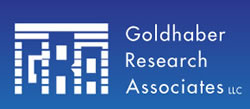Last month, two California mothers sued General Mills claiming that they falsely advertised and deceptively
marketed its Nature Valley products as "natural" when they contain highly processed ingredients such as high
fructose com syrup, and high maltose corn syrup and maltodextrin, a thickener that also adds sweetness to food.
The lawsuit was filed in the United States District Court for the Northern Division of California and charges
General Mills with false advertising and anticompetitiveness under California law.
According to the New York Times (July 27, 2012), Michael Jacobson, executive director of the Center for
Science in the Public Interest, is serving as co-counsel in the lawsuit and has stated that, "High maltose corn
syrup and maltodextrin are highly processed, do not exist in nature and not even onder the most elastic possible
definition could they be considered "natural." Food labeled "organic" must meet certain standards imposed by
the Federal Government but "natural" foods face no such requirements.
In the 1990s, as more and more consumers became concerned about the source of their food and the products in
it, many companies began to rethink their practices and redesign their food labels to reflect this. With an increasing
number of companies using terms like "all natural," "hormone free," and "free range," the United States
Department of Agriculture (USDA) began to realize that some label regulation might be necessary, so that consumers
could be confident in what they were buying. As a result, the USDA published definitions for many terms
being used, including "natural".
According to the USDA, food can only be labeled natural if it contains no artificial ingredients or added colors
and is minimally processed. Furthermore, the label must clearly spell this definition out, so that consumers are
not misled by the "natural" label. Although this label is an important step in the right direction, many consumers
are more concerned about what the natural label does not mean.
For example, animal products raised with the use of artificial hormones can be labeled natural. So can genetically
modified organisms. Most importantly, natural does not mean organic, although many companies would
like consumers to think it does. Organic food has a stringent set of requirements, policies, and procedures that
must be followed for certification. These requirements are much more explicit and in depth than the single paragraph
definition used for "natural." Food labeling is an extremely complex and growing issue in the United
States, with consumers clamoring for sustainable foods and companies eager to supply them, or at least to lead
consumers into believing that they are purchasing healthy products. Consumers are advised to read the entire
label on a product labeled natural, to see what else it might contain.
Feel free to pass this issue of the Goldhaber Warnings Report on to any friend or colleague.
Dr. Gerald M. Goldhaber, the President of Goldhaber Research Associates, LLC, is a nationally recognized expert in the fields of Political Polling and Warning Label Research. His clients include Fortune 500 companies, as well as educational and governmental organizations. He has conducted hundreds of surveys, including political polls for candidates running for U.S Congress, Senate, and President. Dr. Goldhaber also served as a consultant to President Reagan's Private Sector Survey for Cost Control.
©Copyright - All Rights Reserved
DO NOT REPRODUCE WITHOUT WRITTEN PERMISSION BY AUTHOR.









